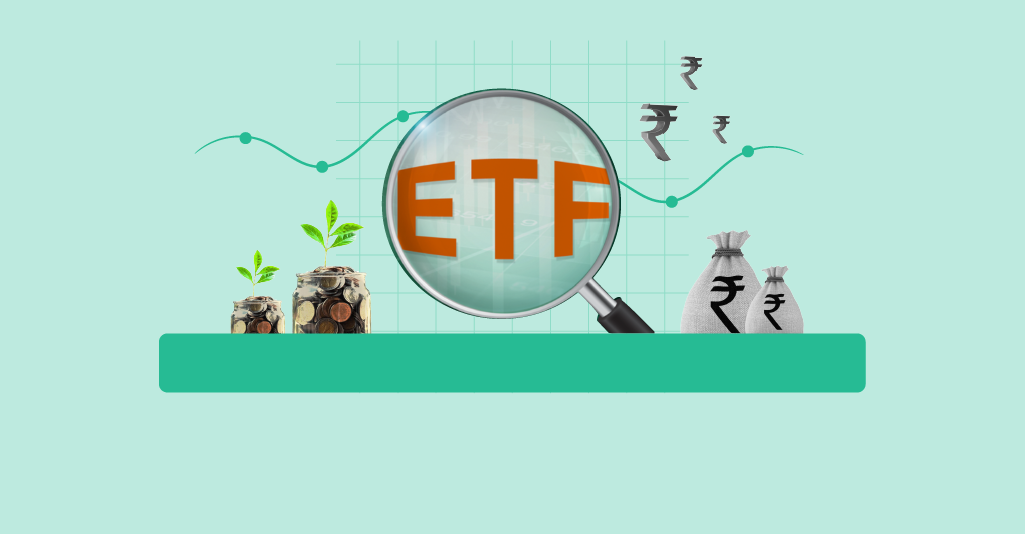Investing in the Indian stock market can be a great way to grow your wealth. And now, there’s a new option available called Exchange Traded Funds (ETFs). These are like baskets of stocks that you can buy all at once, making it easier to invest in the market. But with so many best ETF to invest, it can take time to know which one is the best for you. This blog is here to help give you the information you need to make smart choices and invest wisely.
Table of Contents
5 Key Considerations for Choosing the Best ETFs
When it comes to choosing the best ETF to invest in, there are several key considerations to keep in mind:
- Performance: Don’t just look at returns; measure how closely the ETF tracks its underlying index. This is called a tracking error. Use resources like expense ratios and tracking differences to compare ETFs and ensure they closely mirror the index’s performance.
- Know the Index: Understand the purpose and goals of the index the ETF tracks. Does it align with your investment objectives? Consider country-specific, regional, or global exposure, specific sectors like technology or renewable energy, or access to particular asset classes like equities or fixed income.
- Structure Matters: ETFs come in two flavours: physical and synthetic. Physical ETFs directly hold the underlying assets, while synthetic ones use derivatives. Choose the structure that best suits your risk tolerance and cost preferences.
- Trading Flexibility: Unlike mutual funds, ETFs trade throughout the day, offering liquidity and flexibility. Consider trading during less volatile times, like the middle of the trading day, to optimise your execution.
- Cost Awareness: Be mindful of transaction fees and the annual expense ratio of the ETF. Lower costs translate to higher returns in your pocket.
Tips for Beginners
If you’re new to investing in ETFs, you should approach the process with caution and do your research first. Here are some detailed tips to help you get started:
Consult a financial advisor:
It’s always a good idea to consult a financial advisor before investing in ETFs. They can help you assess your investment needs and recommend suitable ETFs that align with your financial goals.
Do your research:
Before investing in any ETF, it’s important to do your research to understand the fund’s objective, underlying assets, fees, and performance history. You can do this by reading the fund’s prospectus, researching online, or seeking advice from reputable sources.
Compare different ETFs:
There are numerous ETFs available in the market, and they can vary significantly in terms of fees, performance, and investment strategies. To find the right ETF for your investment goals, compare different ETFs based on the following considerations:
Expense ratio:
This is the annual fee charged by the ETF issuer. Look for ETFs with lower expense ratios, as they can have a significant impact on your returns over time.
Performance history:
Look for ETFs that have a track record of consistent performance over a long period.
Investment strategy:
Each ETF follows a specific investment strategy, such as tracking a stock index or investing in one particular sector. Choose an ETF that aligns with your investment strategy and goals.
Liquidity:
ETFs with high trading volumes and assets under management tend to be more liquid, which means you can easily buy and sell them on the stock exchange.
Risk profile:
Each ETF has its risk profile based on the underlying assets in which it invests. Consider your risk tolerance and choose an ETF that aligns with your investment objectives.
Start small and diversify:
Don’t put all your eggs in one basket. Instead, build a diversified portfolio with multiple ETFs. This can help you spread out your risk and minimise the impact of any single investment’s performance on your overall portfolio, one of the important features of demat account. As a beginner, start small and gradually increase your investments over time as you gain more knowledge and experience.
By following these tips, you can make informed decisions and feel confident in your ETF investments.
Conclusion
ETFs offer a great way to invest your money and achieve your financial goals in India. By keeping in mind the key considerations mentioned above and conducting thorough research, you can make informed decisions and unlock the potential of this dynamic investment vehicle. However, it’s important to consult a financial advisor before making any investment decisions. Read more blogs on our website.
Read Also: Internet payment: how can your company sell more?















